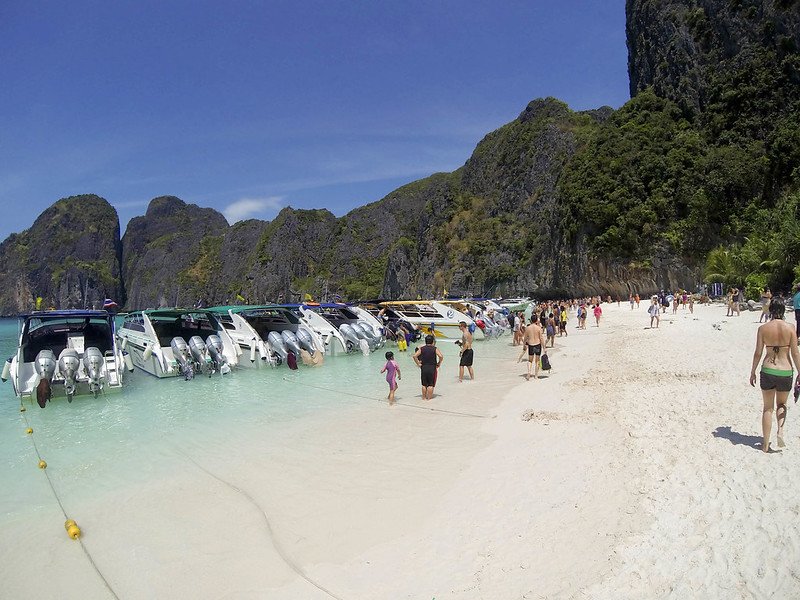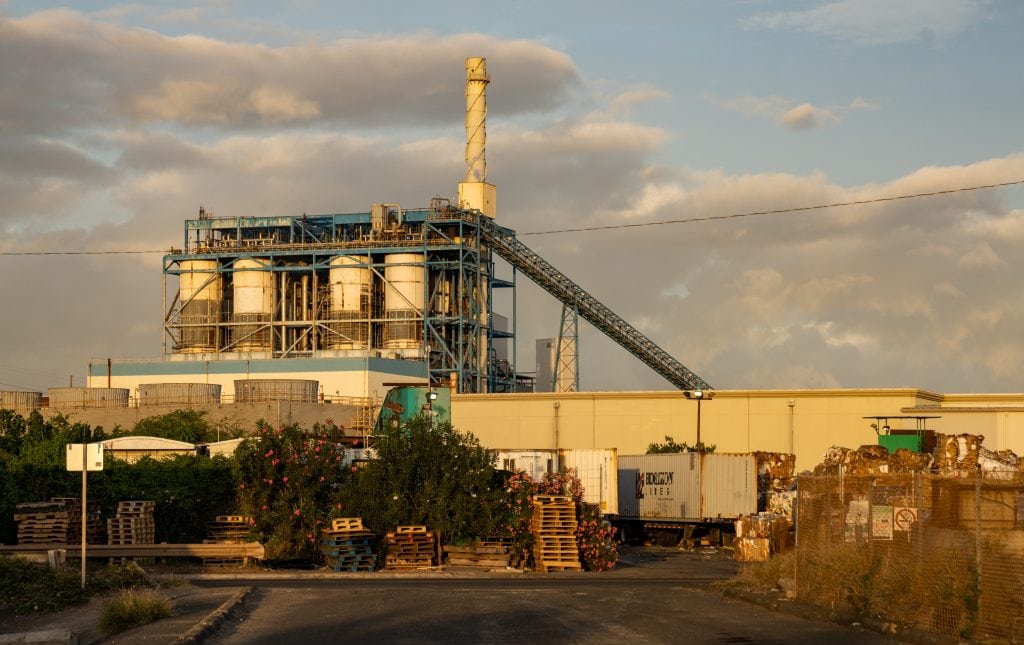Three great stories we found on the internet this week.
No pictures, please
Thailand’s spectacular Maya Bay, made famous by the 2000 movie The Beach, was all but dead four years ago. After the 2000 film starring Leonard DiCaprio, the number of daily visitors rose eight-fold, putting pressures on the ecosystem that wreaked havoc the bay’s coral reefs, water and wildlife.
In response, Thailand did something tourist-dependent places rarely do: It shut down the area to visitors for four years, sacrificing millions in revenue to let the bay heal.

Now, according to one scientist, “mother nature is doing the job.” Clownfish, lobsters and blacktip sharks have returned and are mating once again. And scientists have replanted some 30,000 pieces of coral, 50 percent of which have survived. And Thailand has shown it is willing to continue moderating tourism to keep the bay healthy — just seven months after it reopened, Maya Bay closed again, though this time just for two months, during the critical monsoon season.
“The before and after of [Maya Bay] are so much different,” said the scientist. “It’s encouraged us to preserve this area.”
Friends with benefits
Strong friendships really do pay off: a huge new study shows how friendships between rich and poor are a highly effective way to reduce poverty.
The study analyzed 72 million Facebook relationships representing some 84 percent of US adults ages 25 to 44. It then looked at this data across neighborhoods with particularly good economic mobility. What it found was amazing: the degree to which high-income and low-income residents were connected could predict whether a neighborhood’s children would go on to succeed financially. Low-income kids who grew up in neighborhoods where 70 percent of their friends were wealthy — the typical rate of friendship for higher-income children — had future incomes that were higher by 20 percent, on average.
What’s more, these cross-class friendships were more important to upward mobility than any other factor, including school quality, family structure or job opportunities. The results speak to the power of “social capital,” in which links to wealth or status tend to lead to more of the same. “Growing up in a community connected across class lines improves kids’ outcomes and gives them a better shot at rising out of poverty,” said one Harvard economist.
Read more at the New York Times
Bon voyage

In its race toward carbon neutrality, Hawaii chalked up another victory last week as it accepted the final shipment of coal the state will ever receive.
Hawaii has long been a climate action forerunner. In 2014 it became the first US state to make a net-zero pledge, committing to run entirely on renewable energy by 2045. As part of this pledge, it has been steadily drawing down its fossil fuel usage. In 2020, it banned coal power entirely. Now, its last coal plant, on the island of Oahu, is about to be closed for good.
For Hawaii, getting to 100 percent green power isn’t just ideological. The state relies heavily on imported fossil fuels, particularly oil, making its energy costs the highest in the nation. But that’s quickly changing — solar installations in the sun-drenched state doubled between 2015 and 2020. “This is a huge step forward in Hawaii’s transition to clean energy,” said Governor David Ige of the last coal shipment. “Most importantly, it will leave Hawaii a better place for our children and grandchildren.”







